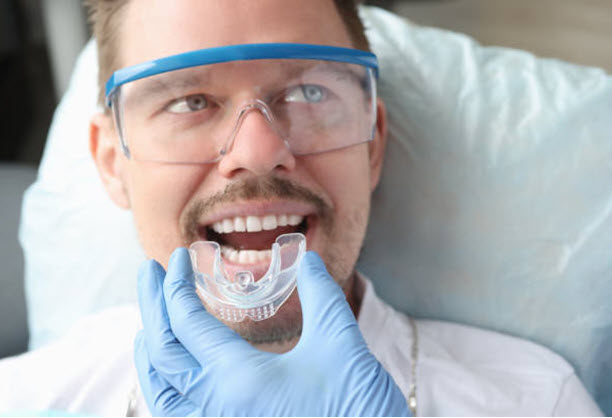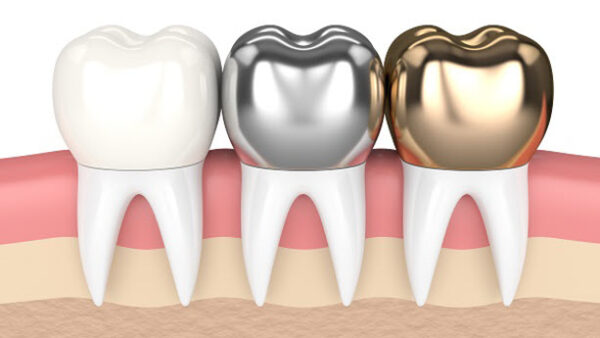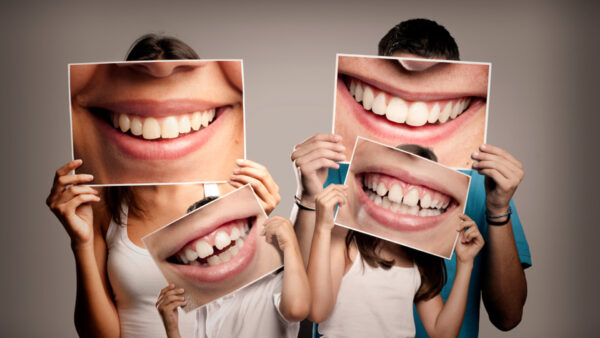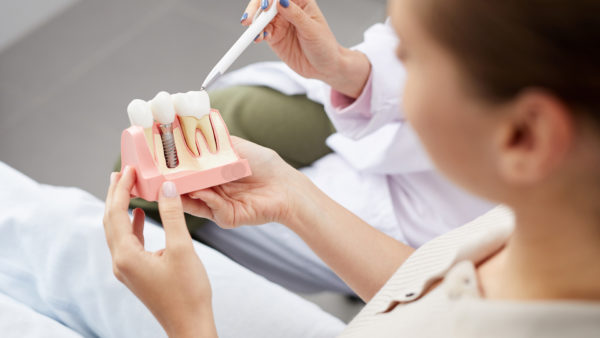If you wake up with a sore jaw, experience frequent headaches, or notice your teeth are wearing down faster than normal, you might be suffering from bruxism — the involuntary clenching or grinding of teeth. While it can occur during the day, it’s more common during sleep, which means many people don’t even know they’re doing it until damage has already begun.
One of the most effective, non-invasive treatments for bruxism is wearing a custom-made nightguard. At Pascack Dental Arts in Westwood, NJ, we specialize in diagnosing bruxism and creating high-quality, dentist-fitted nightguards designed to relieve pain, protect teeth, and help you sleep more peacefully.
Below, we’ll cover what bruxism is, why it’s harmful, and how a custom nightguard can bring much-needed relief.
What Is Bruxism?
Bruxism is the medical term for grinding, gnashing, or clenching your teeth. It can happen while you’re awake (awake bruxism) or during sleep (sleep bruxism). While mild cases may not cause problems, severe bruxism can lead to:
- Worn-down teeth
- Jaw pain or TMJ (temporomandibular joint) issues
- Broken fillings or crowns
- Headaches and facial tension
- Disrupted sleep
Many factors contribute to bruxism, including stress, anxiety, sleep apnea, an abnormal bite, missing or crooked teeth, and even lifestyle habits like smoking or excessive caffeine consumption.
Why Bruxism Shouldn’t Be Ignored
Untreated bruxism can cause a ripple effect of dental and overall health issues. Over time, grinding your teeth can lead to:
1. Tooth Damage
Constant grinding puts stress on your enamel, leading to cracks, chips, and even tooth fractures. This often results in the need for costly dental restorations such as crowns or root canals.
2. Jaw Pain and TMJ Disorders
Chronic jaw clenching can overwork the muscles around the temporomandibular joint, causing pain, clicking, and limited range of motion.
3. Sleep Disruption
If you grind your teeth at night, you may not be getting the deep, restorative sleep your body needs — leading to fatigue, mood swings, and reduced focus.
4. Headaches and Facial Pain
Tension in the jaw and facial muscles can contribute to chronic headaches and even neck or shoulder pain.
The Role of a Nightguard in Bruxism Treatment
A nightguard (also known as an occlusal guard or bite splint) is a dental appliance worn while sleeping to protect your teeth and jaw from the effects of grinding or clenching. It acts as a barrier between your upper and lower teeth, helping to:
- Reduce wear and tear on teeth
- Prevent dental restorations from damage
- Alleviate jaw strain and muscle tension
- Improve sleep quality
- Minimize headaches and facial pain
Why Choose a Custom Nightguard Over Store-Bought Options?
You might be tempted by the affordability and convenience of over-the-counter (OTC) nightguards found in drugstores or online, but they simply don’t offer the same comfort, durability, or effectiveness as a professionally made nightguard.
Here’s why a custom-fitted nightguard from Pascack Dental Arts is worth the investment:
✅ Perfect Fit
A custom nightguard is created from impressions of your mouth, ensuring a snug, comfortable fit that won’t fall out or interfere with your breathing while you sleep.
✅ Higher Comfort
Custom nightguards are made of high-quality materials designed to be thin, smooth, and non-bulky — making them more comfortable to wear all night long.
✅ Long-Lasting
OTC nightguards typically wear out quickly. A professionally made nightguard is far more durable and designed to last several years with proper care.
✅ Protects Existing Dental Work
If you’ve had fillings, crowns, or veneers, a custom guard will be designed to accommodate and protect those restorations.
✅ Adjusted by Your Dentist
A dentist can fine-tune your nightguard for optimal function and comfort, something store-bought guards simply can’t offer.
What to Expect When Getting a Custom Nightguard at Pascack Dental Arts
At our Westwood, NJ dental practice, we make the process of getting a nightguard simple, efficient, and stress-free. Here’s what you can expect:
Step 1: Consultation and Evaluation
We’ll start by discussing your symptoms and examining your mouth, jaw, and teeth. If we determine that you’re grinding or clenching, we’ll recommend a custom nightguard.
Step 2: Digital Impressions
We take precise digital impressions of your teeth, which are used to fabricate a nightguard that fits your bite exactly.
Step 3: Nightguard Fabrication
Your impressions are sent to a dental lab where your custom appliance is crafted from strong, biocompatible materials. This usually takes 1–2 weeks.
Step 4: Fitting and Adjustment
Once your nightguard is ready, we’ll have you try it on in-office to ensure a perfect fit. Minor adjustments can be made on the spot for maximum comfort.
Step 5: Care and Follow-Up
We’ll give you instructions on how to clean and store your nightguard, and we’ll check its condition at your regular dental checkups.
Benefits of Wearing a Custom Nightguard
- Protects against enamel loss and tooth damage
- Alleviates jaw and muscle pain
- Reduces frequency and intensity of headaches
- Improves sleep quality
- Helps prevent costly dental repairs
Long-Term Prevention and Lifestyle Tips for Bruxism
While a nightguard can protect your teeth, addressing the root causes of bruxism can help reduce or eliminate the behavior. Consider these tips:
- Reduce stress through yoga, meditation, or therapy
- Limit caffeine and alcohol, especially before bed
- Maintain a consistent sleep routine
- Avoid chewing on non-food items like pens or fingernails
- Stay hydrated, as dehydration may contribute to bruxism
- Treat underlying sleep apnea if diagnosed
Why Choose Pascack Dental Arts for Bruxism Relief?
At Pascack Dental Arts, our compassionate team has years of experience diagnosing and treating bruxism with customized solutions that prioritize your long-term oral health. Patients throughout Westwood, NJ, and the surrounding communities trust us for:
- Personalized care with modern technology
- Comfortable, high-quality custom nightguards
- Friendly, patient-first approach
- Convenient appointments and follow-ups
We’re here to protect your teeth and help you sleep pain-free — one custom nightguard at a time.
Frequently Asked Questions (FAQs)
Question: How do I know if I need a nightguard?
Answer: Common signs include jaw pain, morning headaches, worn or flattened teeth, tooth sensitivity, and disturbed sleep. A dental exam is the best way to confirm if you’re grinding or clenching.
Question: Will a nightguard stop me from grinding my teeth?
Answer: A nightguard won’t stop the grinding behavior itself, but it will protect your teeth and reduce strain on your jaw muscles, which can alleviate pain and prevent damage.
Question: Can I wear my sports mouthguard as a nightguard?
Answer: No. Sports mouthguards are designed for impact protection and are bulkier than nightguards. A custom nightguard is specially designed for overnight use and comfort.
Question: How long does a custom nightguard last?
Answer: With proper care, a custom nightguard can last 3–5 years or more. We recommend bringing it to your dental checkups so we can ensure it’s still in good shape.
Question: Is a custom nightguard covered by insurance?
Answer: Many dental insurance plans offer partial coverage for custom nightguards. Our team will help you review your benefits and file claims if needed.
Question: What’s the difference between soft and hard nightguards?
Answer: Soft nightguards are more flexible and comfortable, often used for mild cases. Hard or dual-laminate nightguards are more durable and suited for severe grinders.
Question: Will it be uncomfortable to wear a nightguard while sleeping?
Answer: Custom nightguards are designed for comfort. After a brief adjustment period, most patients report they barely notice wearing them.
Question: Can children wear nightguards for bruxism?
Answer: Yes, but they may require a different approach due to developing teeth and jaws. A pediatric dentist should evaluate younger patients.
Question: Can a nightguard help with TMJ?
Answer: Yes, many people with TMJ disorders benefit from wearing a nightguard, as it helps reduce pressure on the jaw joints.
Question: How should I clean my nightguard?
Answer: Rinse it after each use with lukewarm water and brush it gently with a toothbrush. Avoid using hot water or harsh cleaners. Occasionally soak it in a non-alcoholic denture cleaner for deep cleaning.
Ready to Find Relief from Teeth Grinding?
Don’t let bruxism damage your smile or interfere with your sleep. A custom nightguard from Pascack Dental Arts could be the simple solution that saves your teeth and restores your comfort.
📍 Schedule your consultation today and let us help you protect your smile.





Leave a Reply